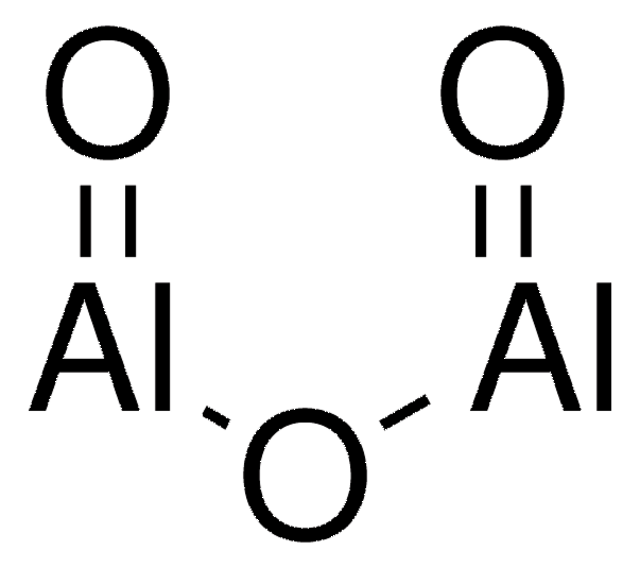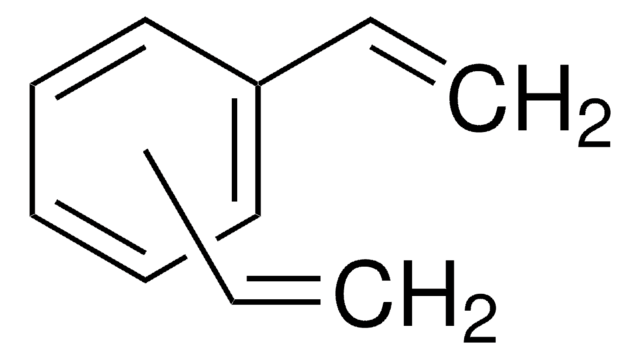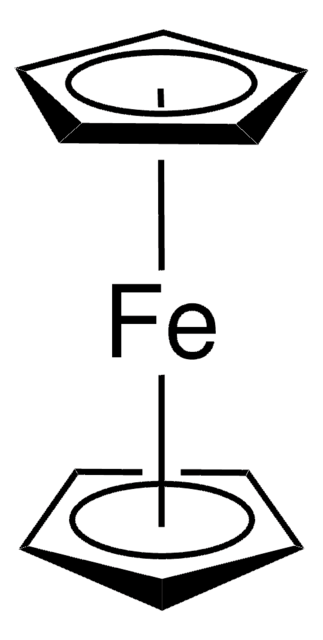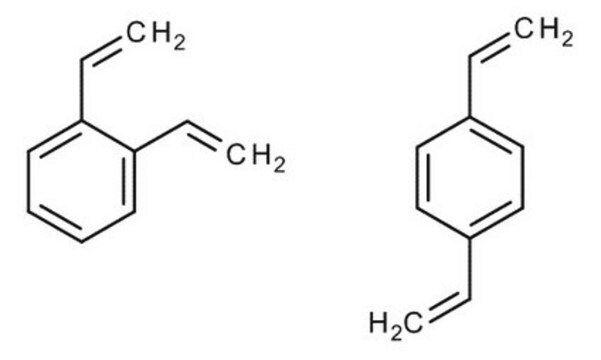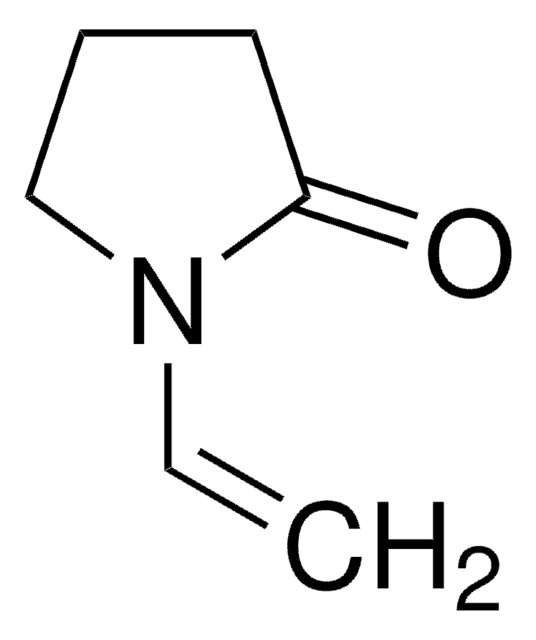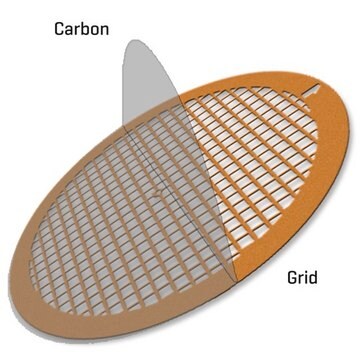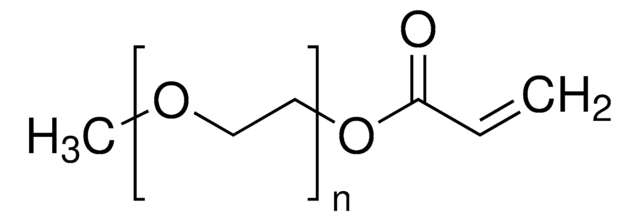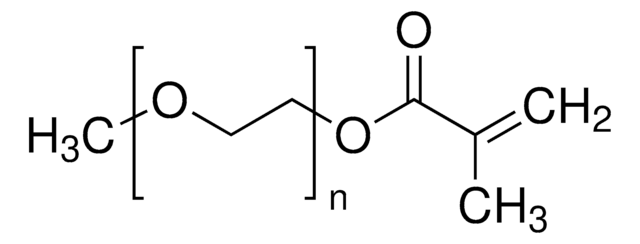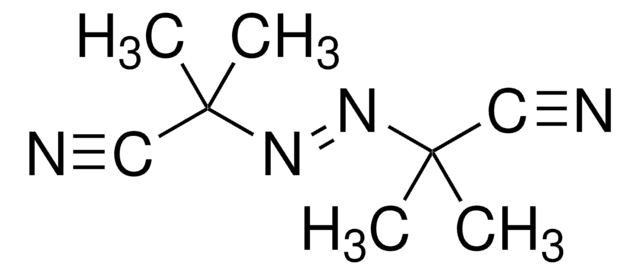Wszystkie zdjęcia(3)
Kluczowe dokumenty
311340
Inhibitor removers
replacement packing, for removing tert-butylcatechol
Synonim(y):
Protease Inhibitor Removal Resin
Zaloguj sięWyświetlanie cen organizacyjnych i kontraktowych
About This Item
Numer WE:
Numer MDL:
Kod UNSPSC:
12162002
Identyfikator substancji w PubChem:
NACRES:
NA.23
Polecane produkty
ciśnienie pary
17 mmHg ( 20 °C)
Poziom jakości
typ
for removing tert-butylcatechol
Postać
powder
InChI
1S/2Al.3O
Klucz InChI
TWNQGVIAIRXVLR-UHFFFAOYSA-N
Szukasz podobnych produktów? Odwiedź Przewodnik dotyczący porównywania produktów
Powiązane kategorie
Opis ogólny
Inhibitor-remover packings and ready-to-use, disposable prepacked columns conveniently remove small amounts of inhibitors which are added to reagents or solvents that would otherwise be unstable. R: 20-37 S: 22-38-36
• Useful in applications which require that the stabilizer or inhibitor (hydroquinone (HQ), hydro-quinone monomethyl ether (MEHQ, 4-methoxyphenol), or 4-tert-butylcatechol (TBC) be removed prior to use.
• Columns may be discarded1 when exhausted or reused by filling column approximately 3/4 full with new packing material. HQ/MEHQ columns refill vol.: ~21g. TBC column refill vol.:~30g.
• Approx. column capacity:
HQ/MEHQ: 3L at 100ppm
TBC: 4L at 15ppm
• TBC columns and packings are not recommended for use with polar solvents, including acrylic acid. Vacuum distillation is suggested for such applications.
Easy-to-use:
1. Prewashing of prepacked glass columns with a small amount of monomer is recommended.
2. Add monomer (or solvent) to an addition funnel which is secured above column.
3. Add monomer dropwise to the column. Monitor rate of addition to prevent overflow of the column. Collect monomer in an appropriate container.
4. For low-melting solid monomers, keep temperature of column above the melting point during use.
Caution: Overheating may cause monomer to polymerize on the column. Viscous or high-melting monomers may be diluted in an appropriate solvent before addition to the column.
1Unused columns can be discarded with other solid chemical waste. After use, the toxicity and hazards of the monomer, from which the inhibitor is being removed, should be considered in deciding how to dispose of the packing material or column.
• Useful in applications which require that the stabilizer or inhibitor (hydroquinone (HQ), hydro-quinone monomethyl ether (MEHQ, 4-methoxyphenol), or 4-tert-butylcatechol (TBC) be removed prior to use.
• Columns may be discarded1 when exhausted or reused by filling column approximately 3/4 full with new packing material. HQ/MEHQ columns refill vol.: ~21g. TBC column refill vol.:~30g.
• Approx. column capacity:
HQ/MEHQ: 3L at 100ppm
TBC: 4L at 15ppm
• TBC columns and packings are not recommended for use with polar solvents, including acrylic acid. Vacuum distillation is suggested for such applications.
Easy-to-use:
1. Prewashing of prepacked glass columns with a small amount of monomer is recommended.
2. Add monomer (or solvent) to an addition funnel which is secured above column.
3. Add monomer dropwise to the column. Monitor rate of addition to prevent overflow of the column. Collect monomer in an appropriate container.
4. For low-melting solid monomers, keep temperature of column above the melting point during use.
Caution: Overheating may cause monomer to polymerize on the column. Viscous or high-melting monomers may be diluted in an appropriate solvent before addition to the column.
1Unused columns can be discarded with other solid chemical waste. After use, the toxicity and hazards of the monomer, from which the inhibitor is being removed, should be considered in deciding how to dispose of the packing material or column.
Ta strona może zawierać tekst przetłumaczony maszynowo.
Kod klasy składowania
13 - Non Combustible Solids
Klasa zagrożenia wodnego (WGK)
nwg
Temperatura zapłonu (°F)
Not applicable
Temperatura zapłonu (°C)
Not applicable
Środki ochrony indywidualnej
Eyeshields, Gloves, type N95 (US)
Wybierz jedną z najnowszych wersji:
Masz już ten produkt?
Dokumenty związane z niedawno zakupionymi produktami zostały zamieszczone w Bibliotece dokumentów.
Klienci oglądali również te produkty
Nasz zespół naukowców ma doświadczenie we wszystkich obszarach badań, w tym w naukach przyrodniczych, materiałoznawstwie, syntezie chemicznej, chromatografii, analityce i wielu innych dziedzinach.
Skontaktuj się z zespołem ds. pomocy technicznej